
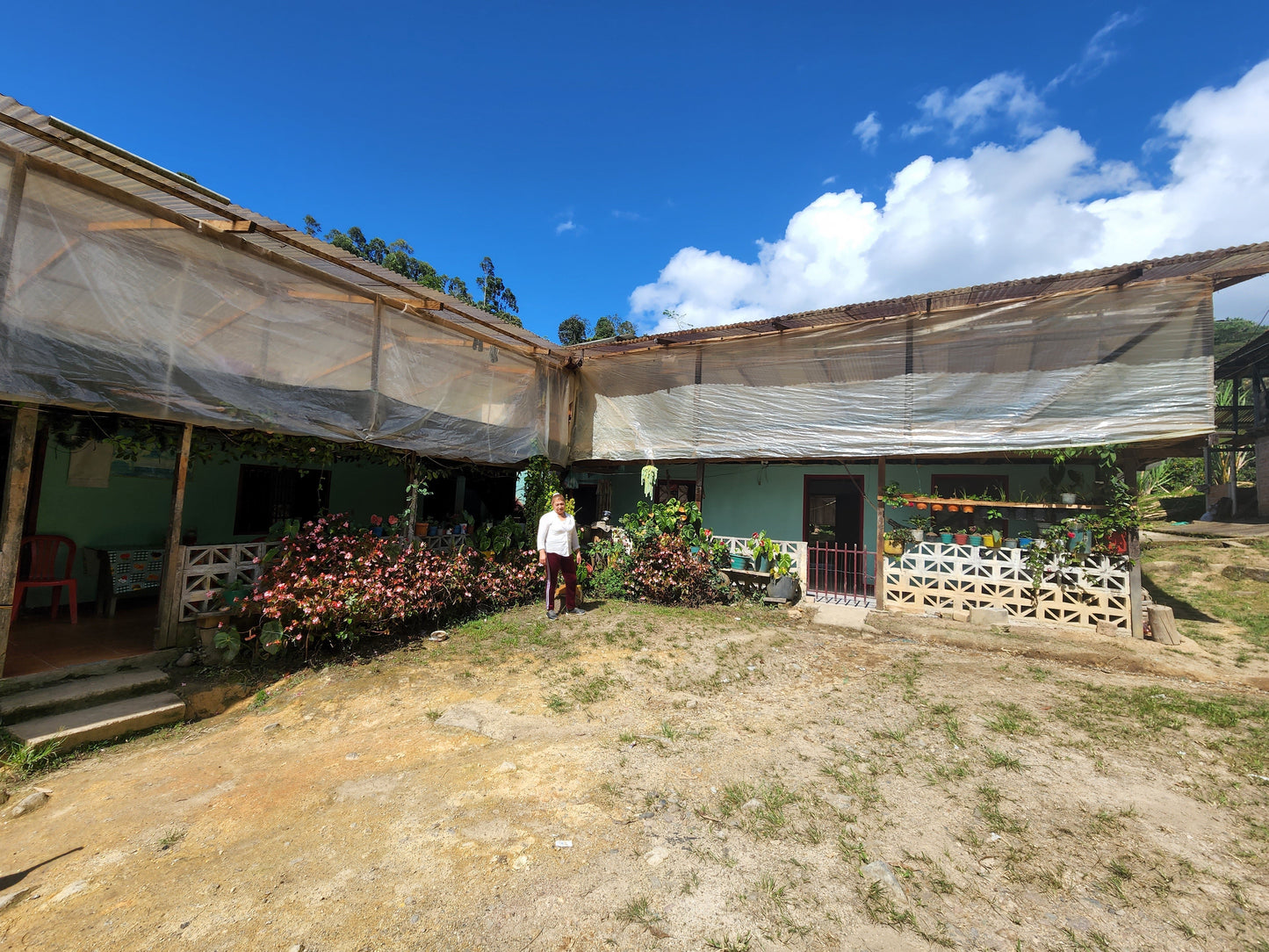
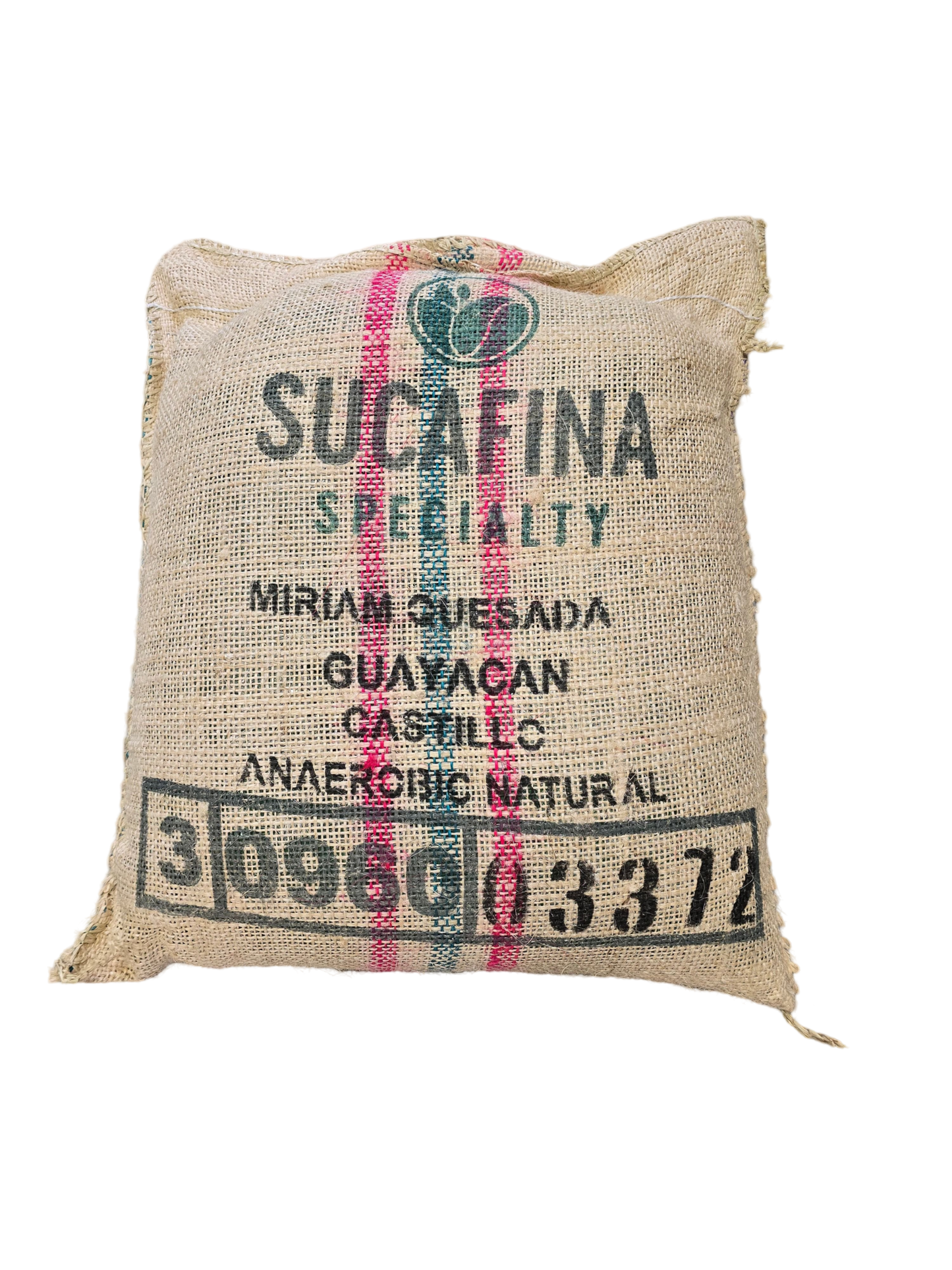
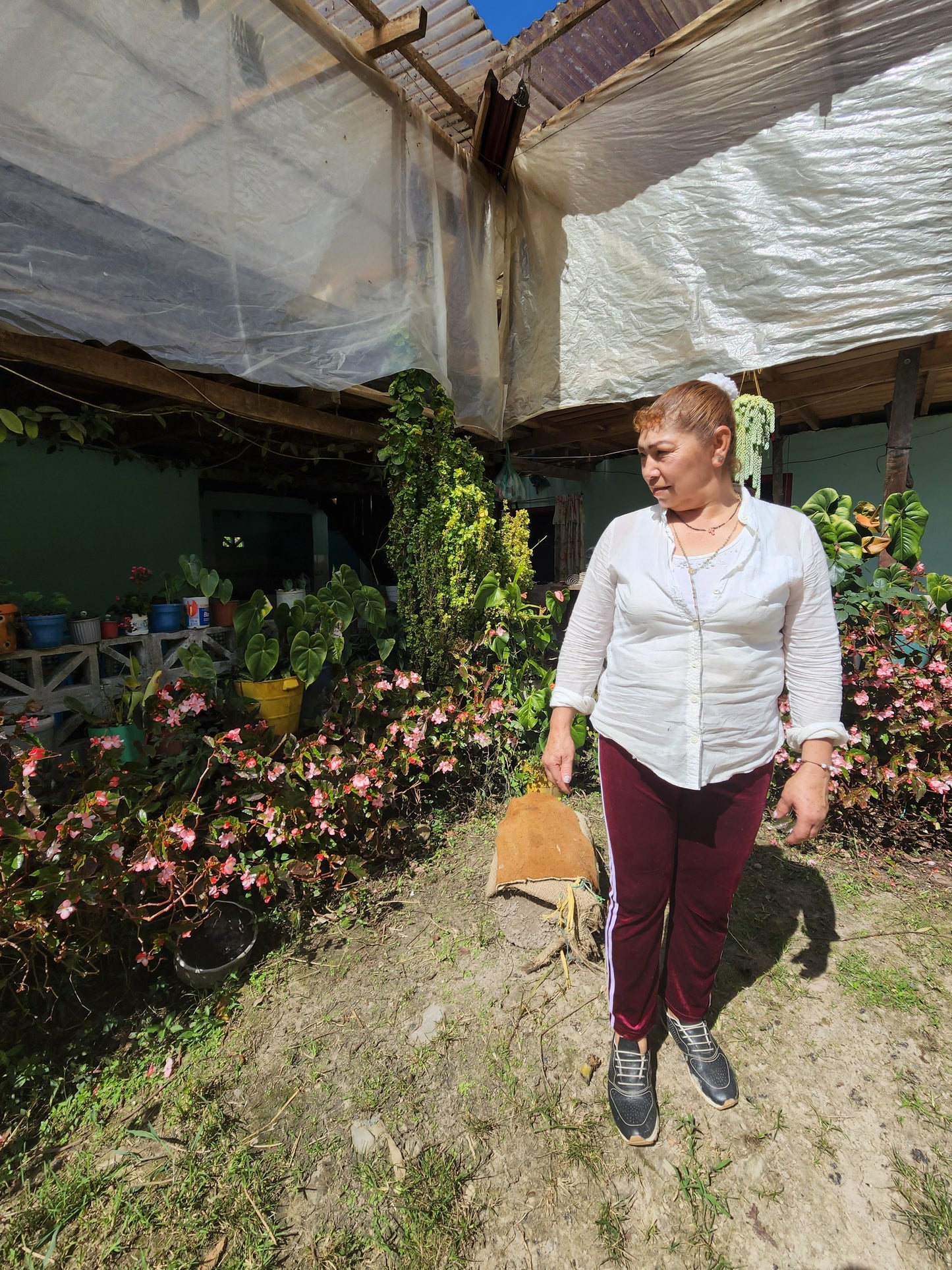
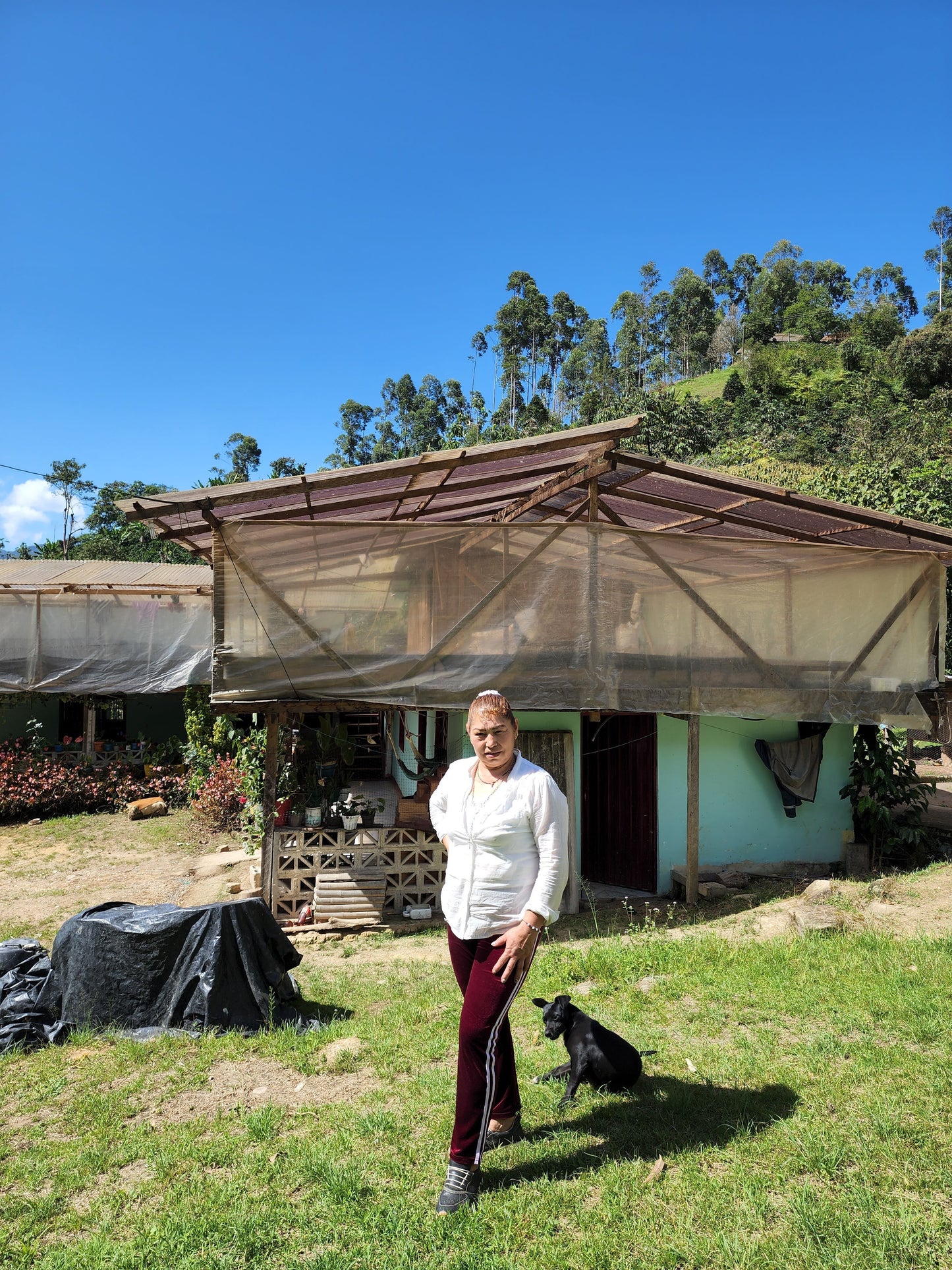
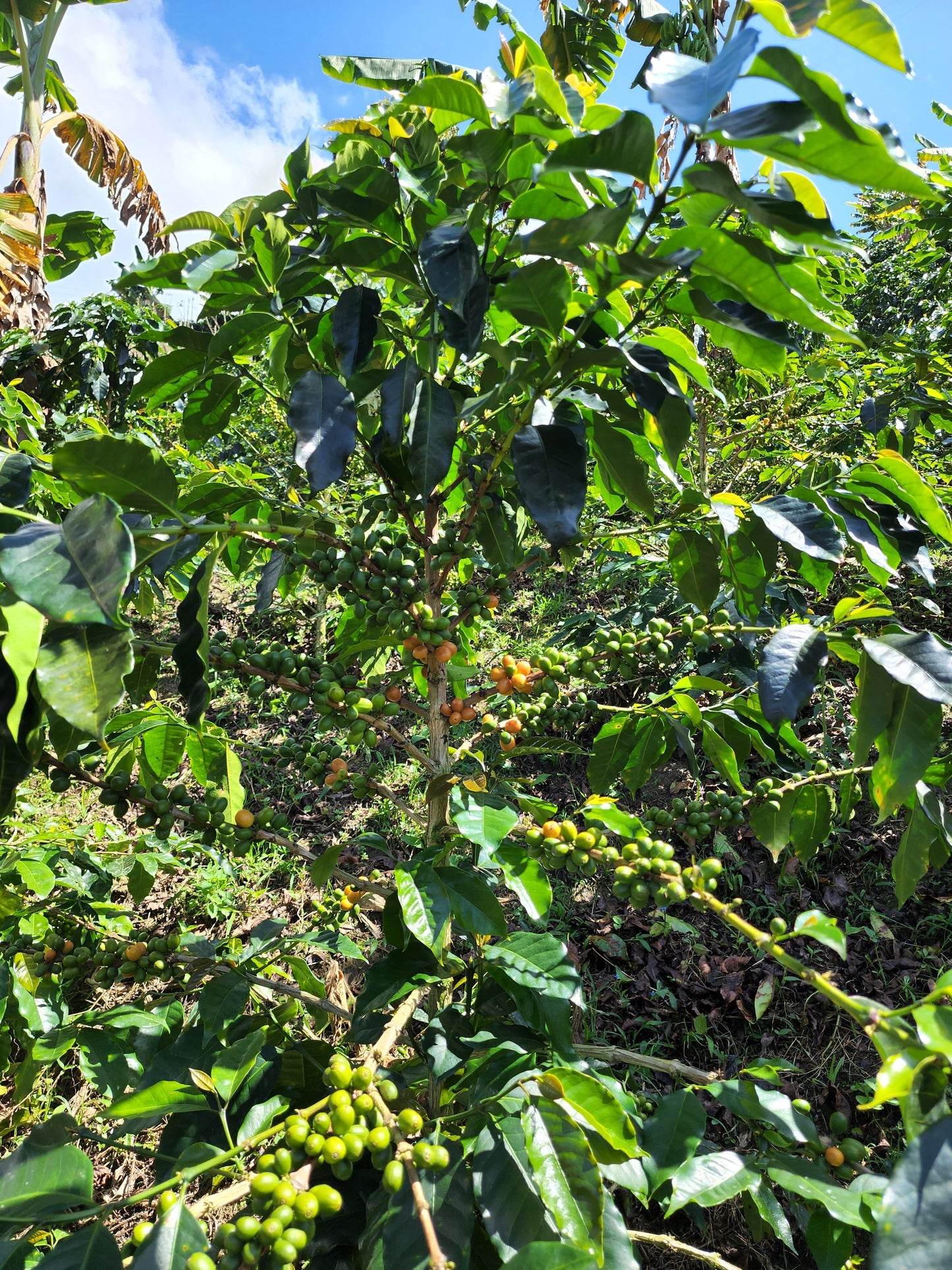
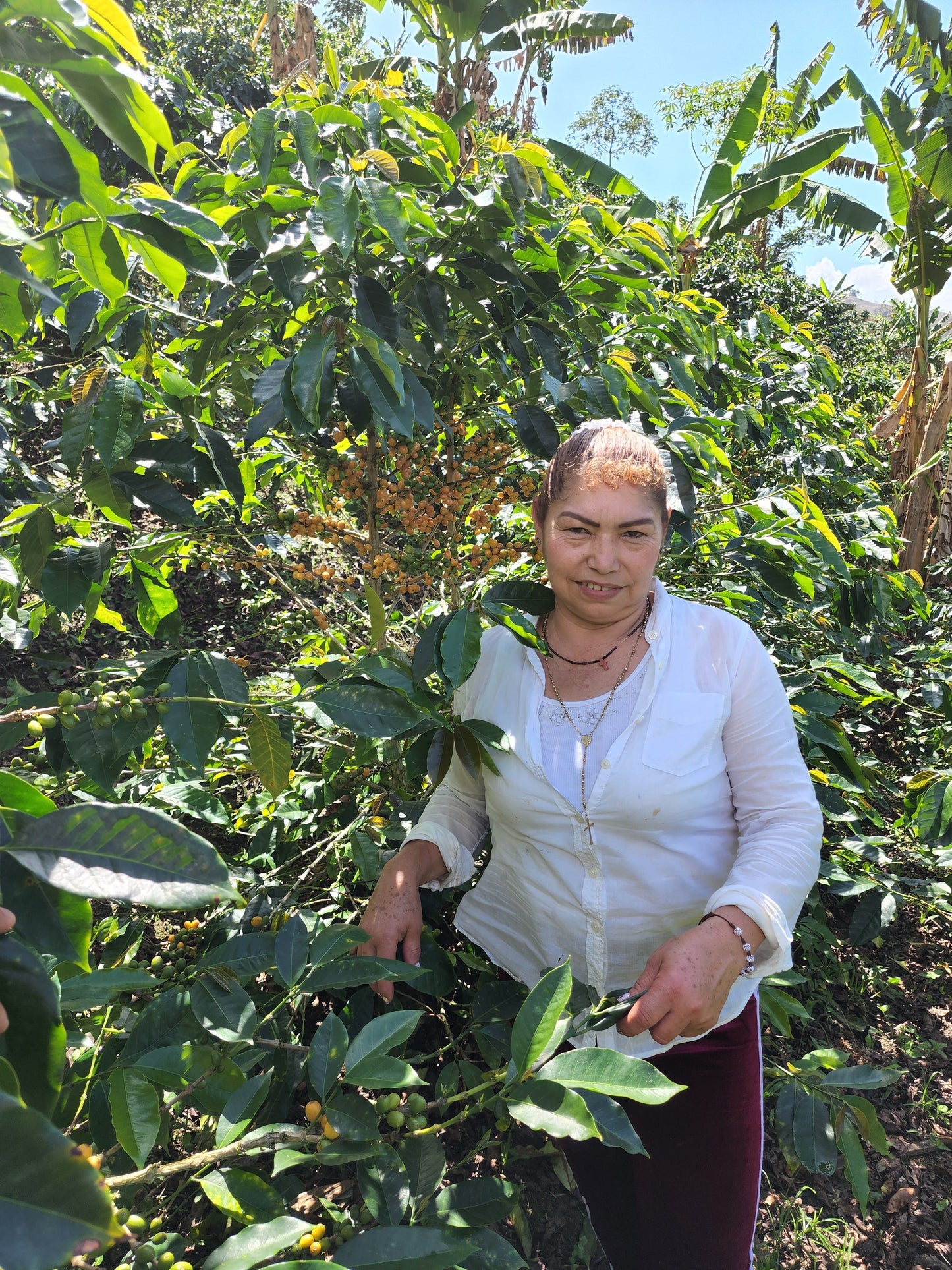
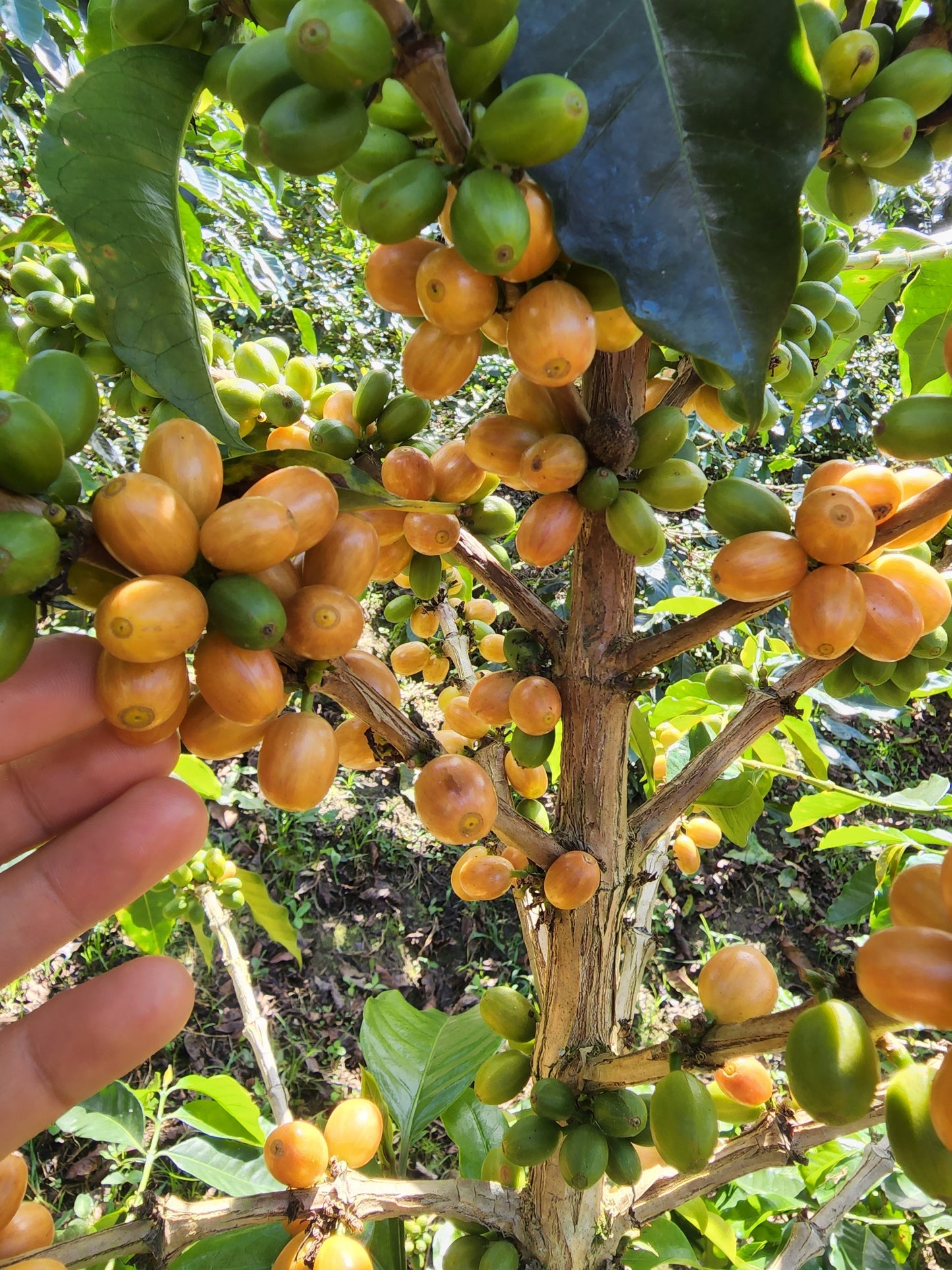


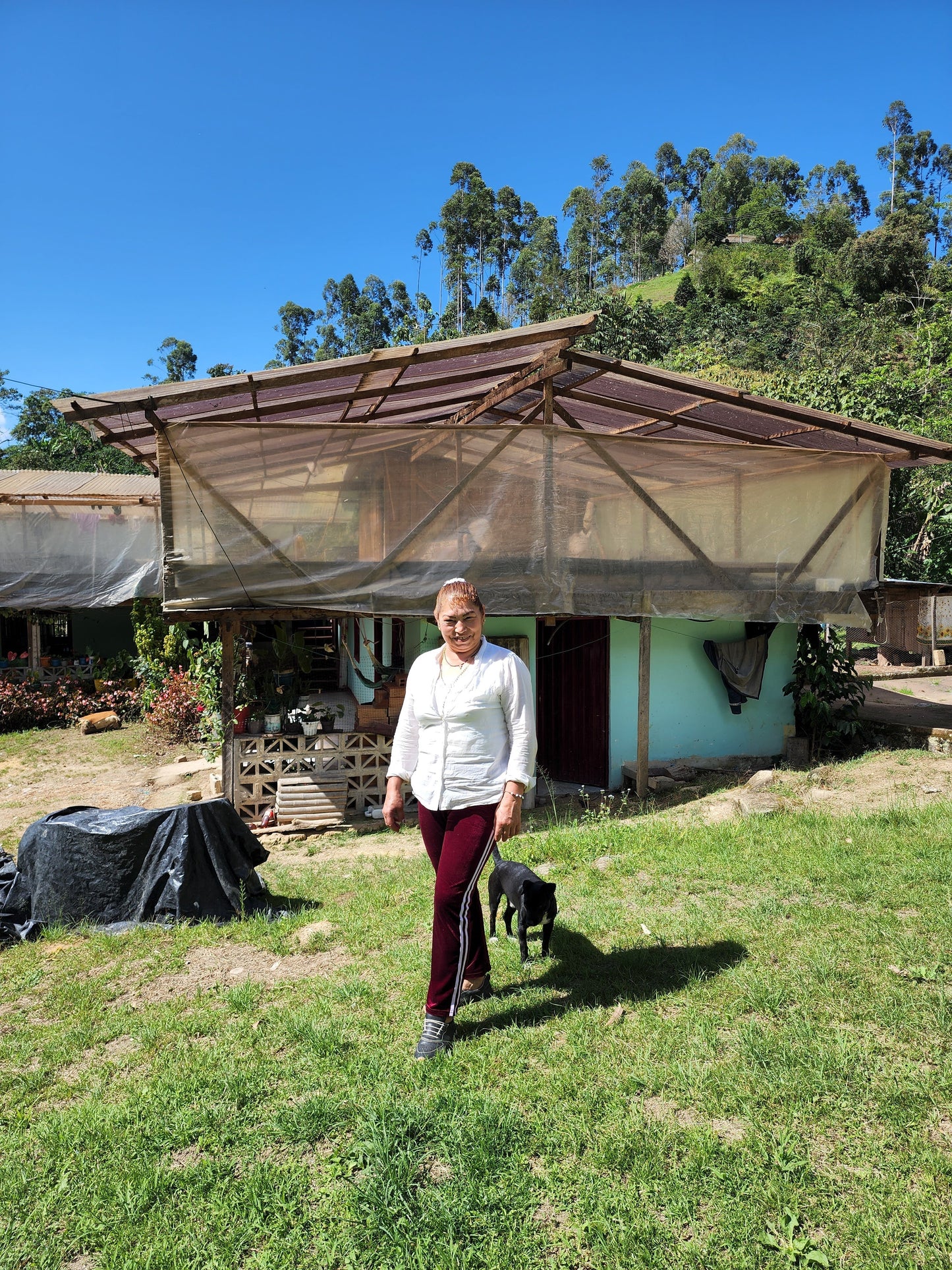
This coffee’s roasted in our filter style — meaning it’s designed to shine as black coffee rather than with milk. That doesn’t mean you have to brew it as a pour-over though. You can make it however you like — espresso, moka pot, AeroPress or anything in between. We simply roast it a little lighter to highlight the bean’s origin flavours giving you a cup that’s clean, vibrant and full of clarity.
Lighter roasting keeps more of the natural acidity and sweetness intact which makes for a beautifully expressive black coffee. This coffee is best enjoyed without milk as it’s too acidic and the flavours don’t pair well once milk is added.
If you prefer your milk coffee with richer caramel, toffee or nutty flavours you might enjoy our espresso range more. Those roasts are taken a little darker to bring out deeper sweetness and balance beautifully with milk.
Origin and Sourcing
?
?
?
Roast Details
?
?
?
?
?
?
?
?
Taste Profile
?
?
Colombia | Finca El Guayacan | Miriam Quesada | Castillo Anaerobic Natural #8486 - When is peak freshness?
Light Roast - Roasted on Roest L100 Ultra
About Miriam Quesada Enciso & Libardo Enciso
Miriam Quesada Enciso is a second-generation coffee producer. She inherited Finca El Guayacan from her ex-husband when they split their land. She has been cultivating coffee on the farm since 2005. Today, Miriam and her current husband, Libardo, manage Finca El Guayacan using a focus on high-quality cultivation and processing.
Cuatro Vientos is a family-owned exporter based in Colombia. Founded in 2018 by Julian & Yonatan Gonzalez and based in Huila, the company is named after the Gonzalez’s first farmnwhere the brothers spent much of their childhood. Yonatan and Julian learned much of what they know from their father, Armando Gonzalez who was a “pergaminero,” someone who bought and sold parchment coffee. Sucafina has worked with Cuatro Vientos since 2021.
Through their partnership with Sucafina, Cuatro Vientos is able to more effectively reach new markets. This, in turn, means they can work with more farmers and develop better programs to support their farmers.
Cuatro Vientos has 3 purchasing points in Huila: Acevedo, Santa Maria and Algeciras. These points are more than just places where they buy coffee, though. They are service hubs where farmers can access services to maintain quality and reach new markets. For Cuatro Vientos, farmers are long term partners who are focused on quality.
With these three locations, Cuatro Vientos is able to source fresh coffee year-round. In their unique position across Huila, they can tap into two alternative harvest seasons within Huila. The northern Huila harvest occurs in the first half of the year and the southern Huilaharvest happens during the second half of the year, providing high-quality coffees year round.
They also own 2 warehouses that are strategically placed in Acevedo (in Southern Huila) and Campo Alegre (in Northern Huila). The warehouses provide an array of important services to farmers. Farmers can dry their coffee, store dried parchment in silos and learn to grade and evaluate coffees in the cupping labs.
Cuatros Vientos adds value by offering logistics and milling support to the over 30 farms that they work with. These farmers are all specialty oriented and Cuatro Vientos’ focus on specialty processing helps farmers ensure that their coffees are handled properly.
One of Cuatro Vientos’ biggest impacts is their credit line offerings. Growers need financing at the beginning of the harvest and it is difficult for them to access financing through traditional banks due to a lack of financial documentation. By providing financing through their partner, Bancolombia, Cuatro Vientos is supporting long term farmer profitability. They also provide financial education workshops that increase farmers’ financial literacy and promotes overall success.
They also provide marketing services for farmers, helping them manage samples and tell their stories. Importantly, they act as an integral part of a two-way conversation between producers and roasters about what they’re looking for, what they can do and how they can best achieve the results they’re looking for.
-
Cultivation
The volcanic loam soil is nutrient-rich and excellent for growing coffee. In addition to coffee, Miriam and Libardo also cultivate plantain and yucca.
Miriam and Libardo are working on improving harvesting methods and ensuring the laborers pick only ripe, red cherry. They’re using incentives like better prices and free meals to entice good workers and reward their efforts.
Once coffee is harvested, they float cherry and remove any lightweights. The good quality cherry is then placed in sealed bags and fermented for 4 days. Following fermentation, they deliver cherry to a separate drying facility where it dries for approximately 15 days. Cherry is turned frequently to ensure even drying.
About Castillo
Castillo is a variety released by Colombia’s National Center for Coffee Investigation (CENCICAFE) in 2005. It is marked by high yield and resistance to Coffee Leaf Rust (CLR). Its dwarf size means it can be planted close together for higher per-hectare yields. Research has indicated that Castillo has a strong quality potential, contrary to popular quality assumptions about Castillo.
Coffee in Colombia
Colombia has been producing and exporting coffee renowned for their full body, bright acidity and rich aftertaste, since the early 19th century.
Colombia boasts a wide range of climates and geographic conditions that, in turn, produce their own unique flavors in coffee. This also means that harvest times can vary quite a bit. In fact, between all its different regions, Colombia produces fresh crop nearly all year round.
The increasing focus on the specialty industry is changing the way traders and farmers do business. It is becoming more common for farmers to isolate the highest quality beans in their lots to market separately. These higher-quality lots are often sold under specific brands or stories.
Besides its wide variety of cup profiles, Colombia has quickly expanded its certification options over the past 10 years. The most common certifications available are Fairtrade, Rainforest Alliance, UTZ and Organic.
Package Weight: 400g











